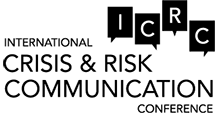
Associate Professor
Pepperdine University in Malibu
United States
Dr. Denise P. Ferguson is Associate Professor of Mediated Communication and Director of Graduate Programs in Communication at Pepperdine University in Malibu, CA. Dr. Ferguson’s research has been published in Business Review Yearbook, Public Relations Review, The Handbook of Public Relations, Public Relations Journa, and Sociological Quarterly, and has been presented at annual conferences of the International Association of Business Disciplines, International Communication Association, National Communication Association and Public Relations Society of America, where she was awarded the 2008 Top Faculty Paper and Best of PR Journal 2012. Dr. Ferguson has several years of experience in professional public relations in higher education, corporate and nonprofit organizations. She earned a Ph.D in Public Affairs and Issues Management at Purdue University, a master’s degree in Communication at Bowling Green State University, and a B.S. in Communication from Indiana State University. Dr. Ferguson holds the Accreditation in Public Relations (APR) from the Public Relations Society of America and is an executive member of the international Commission on Public Relations Education.
2013
Breakout session: Effectiveness in Image Repair: Comparisons of Public Relations and Journalistic Perceptions of Message Strategies Deployed in Post-Scandal/Post-Crisis Public Communication*
Recent organizational crises and increased public accountability have focused attention on and study of the role of crisis communication, issues management and corporate reputation repair. Despite a growing understanding of crisis communication strategies and tactics, different perceptions of what constitutes effective image repair strategies persist. The findings of this study contrast previous research findings from comparisons of journalistic pre-professionals’ effectiveness preferences with those of public relation practitioners. Fifteen core rhetorical choices are examined for the perceived degree of effectiveness in three different types of crisis events. Previous research has suggested a degree of homogeneity in strategy efficacy among catalytic audiences such as those affiliated with public relations, journalism and law. This study extends the previous findings by revealing a high degree of commonality and some differences concerning public relations practitioners’ judgments with journalistic views. Results are presented in terms of effective, ineffective and highly ineffective tiers. Public relations professionals report more rhetorical strategies that are viewed positively, and do not see transcendent and counter-attacking strategies as negatively as do burgeoning journalists. Findings are discussed in terms of application for communication professionals.
*J.D. Wallace, Denise Ferguson and Robert C. Chandler are the authors of this paper. J.D. Wallace and Denise Ferguson co-presented.
